Women's Armor: Fantasy and reality of breast tucks
A warrior girl with such tuck-ups on (and for) her chest on a plate armor is a familiar picture, isn't it? Fantasy artists have long accustomed us to female knights who wear armor made according to the female figure, and emphasize this very figure. And what was the situation with such armor in reality? Let's figure it out!
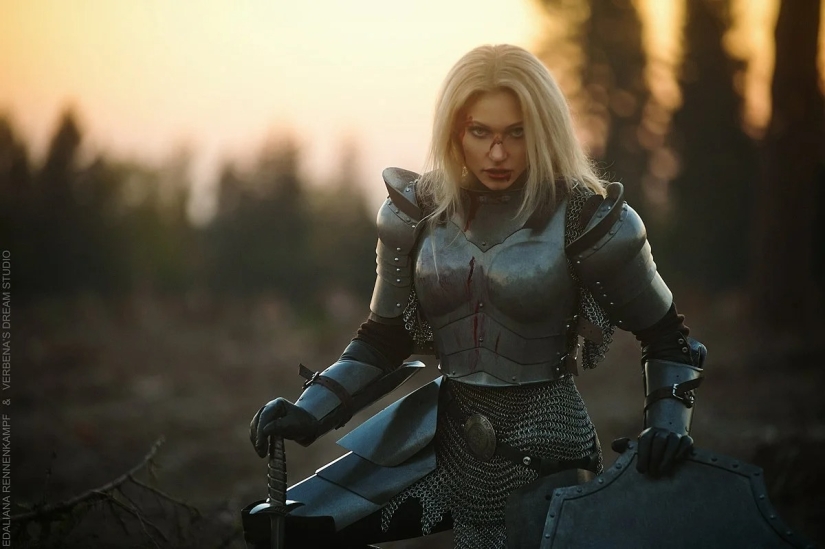
In this article, we will not talk about the classic fantasy armored car. Well, you know — when a fantasy female character has only a very small part of the most secret parts of the body covered with" armor". Why? Because this image is the product of artists.
No warrior of any era went into battle, being dressed in this way. Just for your own safety reasons. Well, the chain mail also hurts the nipples, erasing them into blood when running…
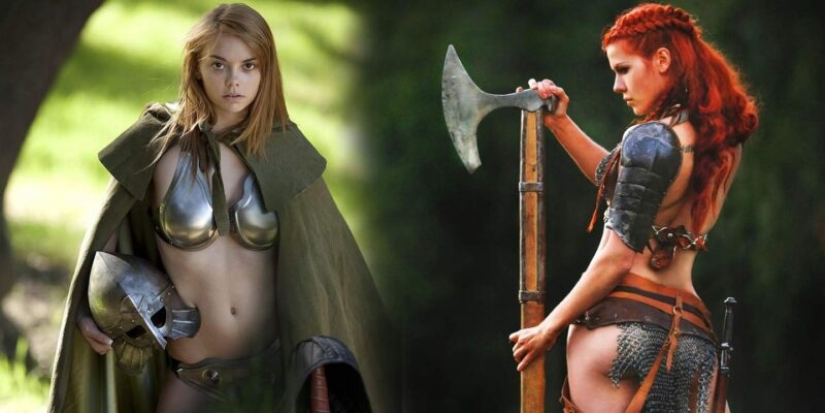
Sorry for the naturalism, but no one managed to escape from the technical aspects of the equipment, and the chain mail-it is such, it requires a helper or bloody sacrifices on the body of the owner. Therefore, minus the armor plates, we will leave them to Luis Royo, Boris Vallejo and other Fred Fields.
Let's move on to realistic armor, which really served to protect the mortal body from the numerous threats of the medieval battlefield — from nettle thickets to arrows, swords and halberds.
At the armor-it's amazing! — there were not only protective tasks, but also aesthetically decorative ones. It was supposed not only to protect the wearer, but also to decorate, and at the same time make him emphatically courageous, which means that he is terrible for the enemy.
Therefore, normal armor necessarily emphasized certain parts of the human body — and the canons of masculinity and male beauty during the Middle Ages, no matter what specific period we consider, were very different from today.
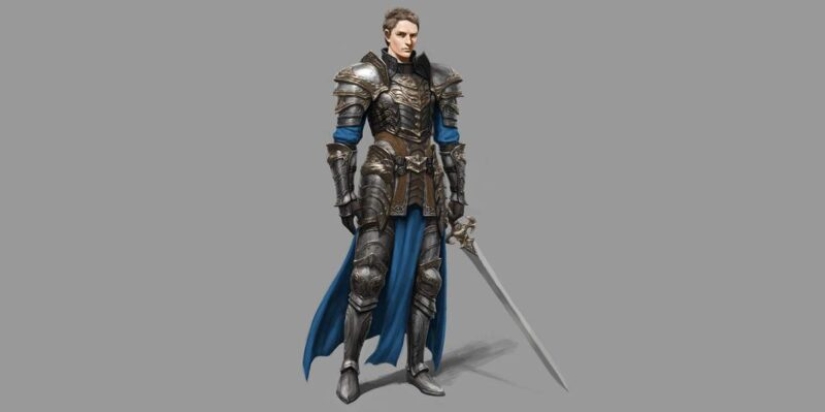
Let us recall a moment that is often forgotten and taken "out of brackets": the Middle Ages is a very, very long period of history, covering more than a thousand years. Therefore, when discussing it, it is logical to raise an additional question at the same time — and what specific part of the Middle Ages are we talking about?
After all, the norms, orders and preferences, for example, of the High Middle Ages and the Late Middle Ages, are, as they say in Odessa, two big differences. Therefore, we will clarify right away: we will talk about the Late Middle Ages — the time when plate armor was used in principle and was the norm on the battlefield.
If today in the culture of a white person (and this is not racism, this is an important clarification: in other cultures-other norms!) quite universal symbols are broad shoulders, a " box " chin and large muscles, then in the days of plate armor in most European countries, a thin waist and, let's say, the main attribute of masculinity were considered attractive for a man. We'll start with the last one.
There was in those (and later) times a wonderful device called "codpiece". If you suddenly don't know, this is such an armored "cover" for the male economy. A thing in the conditions of a medieval battle is simply necessary, and then somehow a stray arrow will take, and will deprive the knight of all chances to leave offspring.
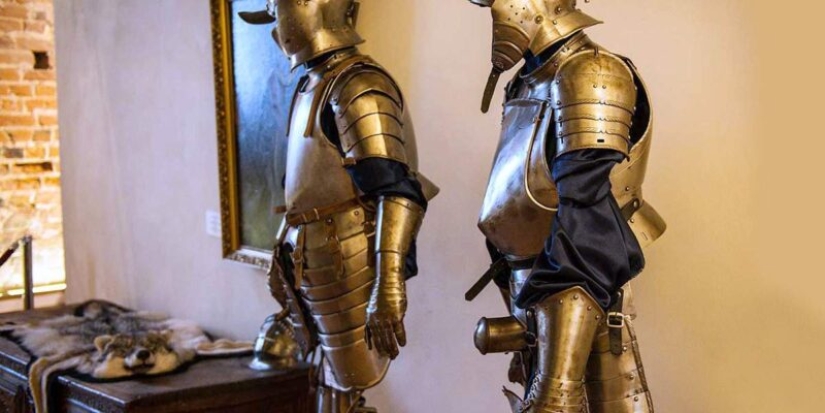
In addition, being removable, the codpiece allowed the armored feudal lord to relieve himself without removing his armor. You can't get enough for every trip "on business" of the squires! From purely protective elements of armor, codpieces quickly turned into protective-decorative-intimidating, simultaneously increasing in size and acquiring all sorts of decorations.
The joke about spiked strap-ons in the Late Middle Ages was not just a joke! Take a look at the illustration, imagine that a metal-clad figure is rushing at you in battle with a kind of "gadget" at the ready, and you will understand everything.
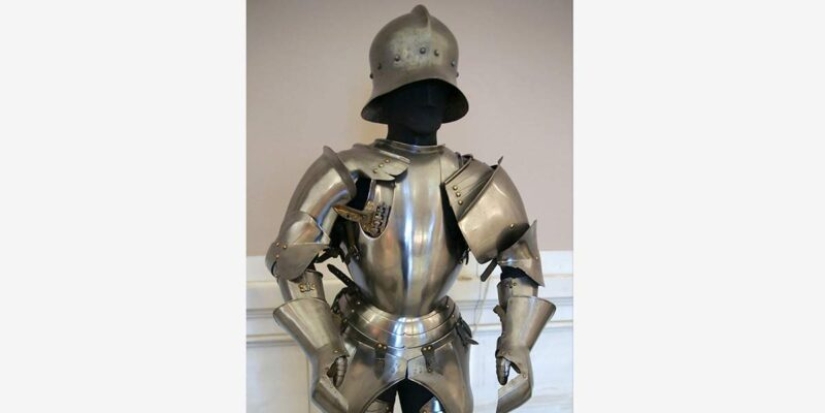
Another sign of male (yes, it is male — in contrast to modern ideas) attractiveness in the Middle Ages was, as we have already said, a thin waist. And what do we see on the armor? The waistlines are so thin and emphasized that any wasp and a modern model will envy!
And complete with the thinnest waist-a cuirass with a bulge in the chest area, designed to take aside and soften the blows received.
So the idea to emphasize the external attractiveness of the wearer of armor is not an invention of the fantasy genre, it is something that people have done throughout their history. It's just that the norms of beauty were different, and therefore the armor emphasized not those aspects of the figure that are emphasized by modern fantasy illustrations created for modern people with their ideas about beauty — male or female.
And here we finally come to the main topic of the article — women's armor.
Fantasy generally allows itself various liberties in the field of the appearance of armor and other clothing. We have already mentioned the classic bronelifchik, it's not a sin to remember magicians dressed as girls of easy virtue… Remember? Great, now forget it.
Speaking about the liberties allowed in fantasy, we note that we are not against them, just in this case we try to keep them within the limits of practicality and realism. And, reasoning about them, we can come to the conclusion that… Armor with breast tucks, with a thin female waist and a round girlish ass could really exist.
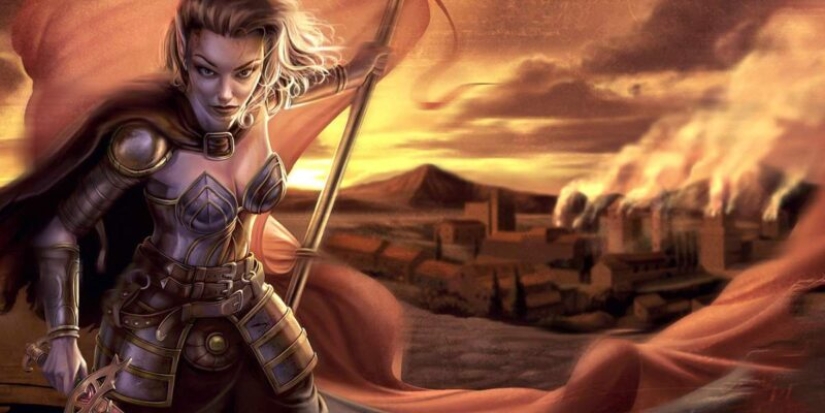
After all, how does emphasizing the attributes of femininity fundamentally differ from the above-described attributes of masculinity? Nothing, damn it! And here a natural question arises: if the people of the Middle Ages were so gifted in understanding aesthetics and human attractiveness, why do we not find a lot of women's armor during excavations, in museums, and so on?
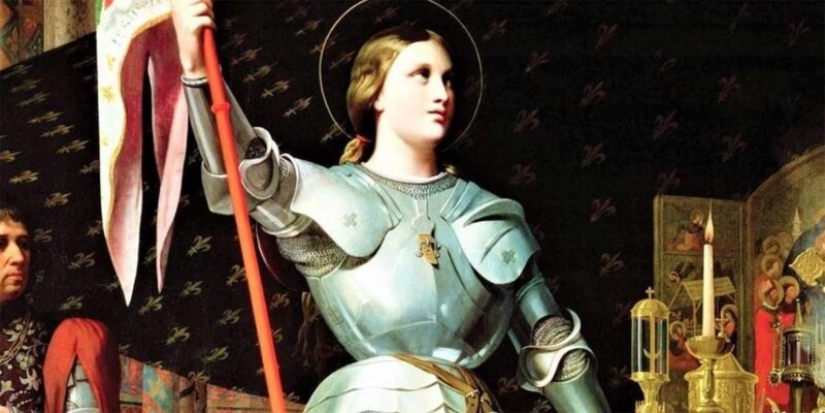
And the answer, unfortunately, is very simple. Women in the Middle Ages simply did not wear armor. The war was a purely male affair, so the armor was made for men's figures. Of course, there were exceptions to this rule, too — for example, Jeanne d’Ark-but it is necessary to understand that exceptions were not just rare, they were isolated throughout the entire period of history under consideration.
In general, women in the army are an extremely new phenomenon from a historical point of view. And the lack of demand is followed by a natural lack of supply. The same Joan is usually depicted in male armor.
If you look at any plate armor, whether it's classic Milanese or any of the tournament ones, you can see that all of them... are actually not so much men's as what would be called "unisex" today. That is, they are equally well suited for both men and women.
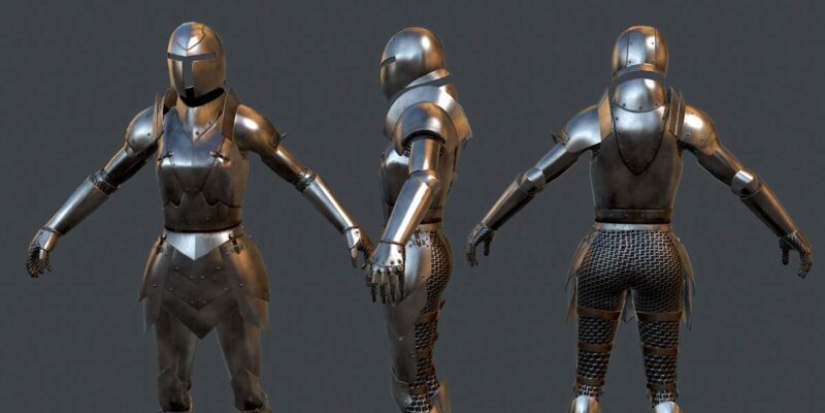
This is what women's armor would look like if it existed
With men, everything is clear, the armor was made for them — no surprises. As for women and armor, pay attention to the very protrusion on the chest — the cuirass does not fit closely to the body — on the contrary, it is as far away from it as possible. As already mentioned, this is done for completely rational reasons — the rounded or conical shape of the armor better deflects blows, and in extreme cases — dampens them.
And in this very ledge on the chest, you can easily hide a woman's breast of any size, up to... well, you can imagine yourself there, okay? And it's not difficult to squeeze a woman's waist into the wasp proportions of the armor. The rest of the female anatomy does not differ from the male one from the point of view of armor — arms, legs, head... adjust the size — and that's it.
So, in principle, if there was a period in history when women would go into battle en masse, on a par with men, the creation of female armor would be a very realistic prospect.
Logically speaking, the differences between women's armor and men's would not be too great. Of course, the ledge on the cuirass would have been placed higher to emphasize the attributes of femininity, but in principle it would not have gone anywhere. The waist, most likely, would have remained as thin as on ordinary armor. Alas (or " Hurrah!"), history has not brought us a single female armor.
However, fantasy lives by its own laws, and there are still many girls in armor made "according to female patterns" and including bibs with tucks under the chest. And the question arises: are these very darts dangerous, do they make it more likely that a blow from one of them will be reflected in the center of the chest?
It is logical to assume that when a blow is reflected from a metal "tit" into the center of the cuirass, all the energy of the blow will have to go to this very center, which will quickly divide the girl inside the armor in half, scattering her across the battlefield like a drop of nicotine-a hamster on the walls.
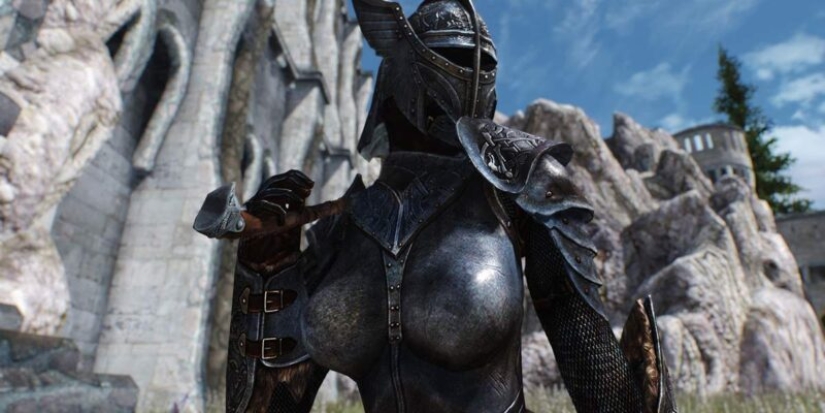
Yes, it is logical... up to a certain limit. But beyond this limit, a slightly different, real reality begins. We will depart from it only in the fact that we assume the existence of such female armor as a fact.
So, the armor with "tits". It would have been made of hardened steel and therefore it would have broken through with anything. Of course, if your particular armor was made in a dendrophecal way, then the problem would not be rounded elements at all.
But the hardened steel protects the wearer well from punching with any weapon, except for specially created peckers for this purpose. Therefore, normally, they tried to break through the armor not in the chest area, which was an impenetrable steel sheet, but in the joints or in the cracks of the visor.
Is it difficult? Of course, but the choice was small — either you are hammering like a woodpecker into steel, or you find a place where there is no steel, or it is significantly thinner. At the same time, the same-armed enemy does not stand still, looking at attempts to find a weak point in his armor, he also waves off with a weapon! Or even rode away a long time ago…
Does this allow us to say that the protective qualities of a cuirass with "tits" were absolutely no different from those of an ordinary cuirass? Probably not. There would still be a small probability of hitting the wearer of such armor in the center of the sternum. But was this probability so great that it could be argued that such armor would not be produced?
Let's face it, hardly. Especially if you remember that real historical armor also had a place where blows that hit the chest slip off: the same wasp waist. Look at the armor by turning your head. What do you see? Exactly! "Tits", located sideways. But in theory, because of this depression on the cuirass, the soldiers would be cut in half — only not along, but across.
However, it was precisely such armor that was produced in the present Middle Ages. In our humble opinion, this fact alone allows us to state with great confidence that the tucks under the chest on the armor would not make the armor significantly more or less dangerous.
See you on the virtual battlefields!
Keywords: History | Women | World | Bra | Protection | Breast | Fantasy | Longreads
Post News ArticleRecent articles

It's high time to admit that this whole hipster idea has gone too far. The concept has become so popular that even restaurants have ...

There is a perception that people only use 10% of their brain potential. But the heroes of our review, apparently, found a way to ...
Related articles

Tired after a hard day at work? Suffer from autumn depression? Don't know how to entertain yourself in your free time? This ...

In the fall of 1972, Bill Yates traveled through the countryside in the vicinity of Tampa, Florida. At that time, he was studying ...

When a person is in a life-threatening situation is awful, but even worse when it happens to a child. 11-year-old American Terry ...

New Year's is a time to surprise and delight loved ones not only with gifts but also with a unique presentation of the holiday ...